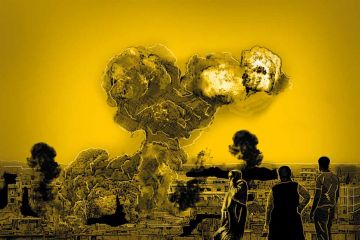
Late on the evening of
August 31, 2014, in Kolkata, four young men from Telangana made their way down
from the second floor to the lobby of Hotel Krishna in New Market, where they
had checked in earlier. They were filled with trepidation, hope and fear.
A journey awaited, a
holy vow was close to fulfilment. They didn’t make it far.
Away from Syria, away
from the promise of 72 virgins that the Islamic State (IS or ISIS) had assured
them, right there on the battered brown sofa of the





